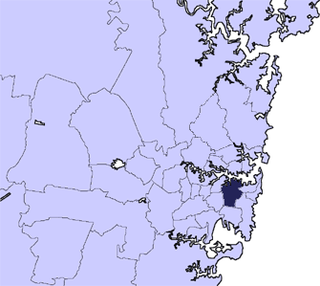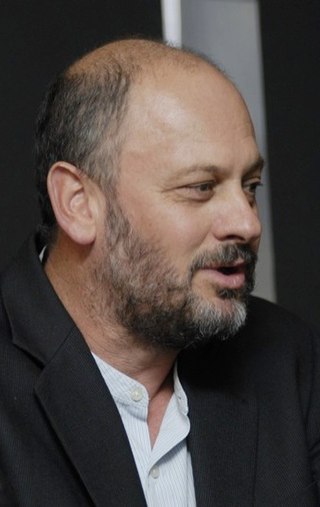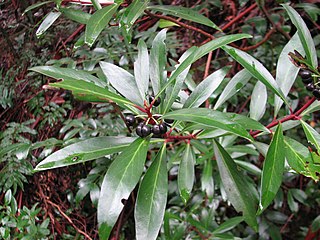
Permaculture is an approach to land management and settlement design that adopts arrangements observed in flourishing natural ecosystems. It includes a set of design principles derived using whole-systems thinking. It applies these principles in fields such as regenerative agriculture, town planning, rewilding, and community resilience. The term was coined in 1978 by Bill Mollison and David Holmgren, who formulated the concept in opposition to modern industrialized methods, instead adopting a more traditional or "natural" approach to agriculture.
David Holmgren is an Australian environmental designer, ecological educator and writer. He is best known as one of the co-originators of the permaculture concept with Bill Mollison.
The University of Technology Sydney (UTS) is a public research university located in Sydney, New South Wales, Australia. The university was founded in its current form in 1988, though its origins as a technical institution can be traced back to the 1870s. UTS is a founding member of the Australian Technology Network (ATN), and is a member of Universities Australia (UA) and the Worldwide Universities Network (WUN).

Urban agriculture refers to various practices of cultivating, processing, and distributing food in urban areas. The term also applies to the area activities of animal husbandry, aquaculture, beekeeping, and horticulture in an urban context. Urban agriculture is distinguished from peri-urban agriculture, which takes place in rural areas at the edge of suburbs.

Carlingford is a suburb of Sydney, in the state of New South Wales, Australia. Carlingford is 22 kilometres north-west of the Sydney central business district in the local government area of City of Parramatta. Carlingford sits at the meeting point of Northern Sydney and Western Sydney sitting on both sides of Pennant Hills Road which generally acts as a divider of the two regions. While being part of City of Parramatta, it is sometimes referred to as being part of the Hills District.

Greater Western Sydney (GWS) is a large region of the metropolitan area of Greater Sydney, New South Wales (NSW), Australia that generally embraces the north-west, south-west, central-west, far western and the Blue Mountains sub-regions within Sydney's metropolitan area and encompasses 11 local government areas: Blacktown, Blue Mountains, Camden, Campbelltown, Cumberland, Fairfield, Hawkesbury, Liverpool, Parramatta, Penrith and Wollondilly. It includes Western Sydney, which has a number of different definitions, although the one consistently used is the region composed of ten local government authorities, most of which are members of the Western Sydney Regional Organisation of Councils (WSROC). The NSW Government's Office of Western Sydney calls the region "Greater Western Sydney".

The City of Sydney is the local government area covering the Sydney central business district and surrounding inner city suburbs of the greater metropolitan area of Sydney, New South Wales, Australia. Established by Act of Parliament in 1842, the City of Sydney is the oldest, and the oldest-surviving, local government authority in New South Wales, and the second-oldest in Australia, with only the City of Adelaide being older by two years.

Chippendale is a small inner-city suburb of Sydney, New South Wales, Australia on the southern edge of the Sydney central business district, in the local government area of the City of Sydney. Chippendale is located between Broadway to the north and Cleveland Street to the south, Central railway station to the east and the University of Sydney to the west.

Timothy Fridtjof Flannery is an Australian mammalogist, palaeontologist, environmentalist, conservationist, explorer, author, science communicator, activist and public scientist. He was awarded Australian of the Year in 2007 for his work and advocacy on environmental issues. He is the Geneva Graduate Institute’s Fondation Segré Distinguished Visiting Professor.

The Towra Point Nature Reserve is a protected nature reserve that is located in Sutherland Shire, Southern Sydney, New South Wales, in eastern Australia. The 603-hectare (1,490-acre) reserve is situated on the southern shores of Botany Bay at Kurnell, within the Sutherland Shire. The reserve is protected under the Ramsar Convention as a wetland of international importance as an important breeding ground for many vulnerable, protected, or endangered species. The Towra Point Aquatic Nature Reserve is located in the surrounding waterways.

Tasmannia lanceolata, commonly known as Tasmanian pepperberry or mountain pepper, is a shrub native to woodlands and cool temperate rainforest of south-eastern Australia. The shrub varies from 2–10 metres (6.6–32.8 ft) high. The aromatic leaves are lanceolate to narrow-elliptic or oblanceolate, 4–12 cm long, and 0.7–2.0 cm wide, with a distinctly pale undersurface. Stems are quite red in colour. The small cream or white flowers appear in summer and are followed by black, globose, two-lobed berries 5–8 mm wide, which appear in autumn. There are separate male and female plants.

Mark Diesendorf is an Australian academic and environmentalist, known for his work in sustainable development and renewable energy. He currently teaches environmental studies at the University of New South Wales, Australia. He was formerly professor of environmental science and founding director of the Institute for Sustainable Futures at the University of Technology, Sydney and before that a principal research scientist with CSIRO, where he was involved in early research on integrating wind power into electricity grids. His most recent book is Sustainable Energy Solutions for Climate Change.

Casuarina glauca, commonly known as swamp she-oak, swamp buloke, swamp she-oak, marsh sheoak, grey she-oak, grey she-oak, native pine, or guman by the Gadigal people, is a species of flowering plant that is endemic to eastern Australia. It is a dioecious tree that often forms root suckers and has fissured and scaly bark, spreading or drooping branchlets, the leaves reduced to scales in whorls of 12 to 20, the fruit 9–18 mm (0.35–0.71 in) long containing winged seeds (samaras) 3.5–5.0 mm (0.14–0.20 in) long.

Green buildings in Australia are assessed and rated by a variety of government and independent ratings systems.

Jerry Coleby-Williams is an English–Australian conservationist, horticulturalist, plant curator and television and radio personality. He has been a presenter on ABC TV’s Gardening Australia since 1999. He is the director of the Seedsavers Network and an Executive Member of the Queensland Conservation Council.
SESL Australia was established in 1983 as Sydney Environmental & Soil Laboratory by Simon Leake. SESL provides independent laboratory testing and advisory services to landscape, horticulture, sport and leisure turf, civil construction, environment, government, mining and the waste industry. It offers sample collection, monitoring, analysis and interpretation of soil, water, plant tissue and wastes. SESL also offers training courses on a range of earth science topics mainly focused on urban horticulture, sport and leisure turf, and environmental water.

Climate-friendly gardening is a form of gardening that can reduce emissions of greenhouse gases from gardens and encourage the absorption of carbon dioxide by soils and plants in order to aid the reduction of global warming. To be a climate-friendly gardener means considering both what happens in a garden and the materials brought into it as well as the impact they have on land use and climate. It can also include garden features or activities in the garden that help to reduce greenhouse gas emissions through processes not directly related to gardening.
The Seed Savers' Network (SSN) is an Australian not-for-profit organisation, based in Byron Bay, New South Wales. Since 1986, SSN has organised gardeners and farmers to collect, multiply and redistribute garden seeds in Australia and also within peasant organisations worldwide.

Waste management in Australia started to be implemented as a modern system by the second half of the 19th century, with its progresses driven by technological and sanitary advances. It is currently regulated at both federal and state level. The Commonwealth's Department of the Environment and Energy is responsible for the national legislative framework.

Phoenix Central Park is a performing arts venue and private art gallery located at 37-49 O'Connor Street, Chippendale, New South Wales, Australia. The location is within the Chippendale Heritage Conservation Area (HCA), item ‘C9’ on Schedule 5 of the Sydney Environmental Plan (LEP) 2012. The site is also within the Chippendale Locality as described in Section 2.3.1 of the Sydney Development Control Plan (DCP) 2012.
















